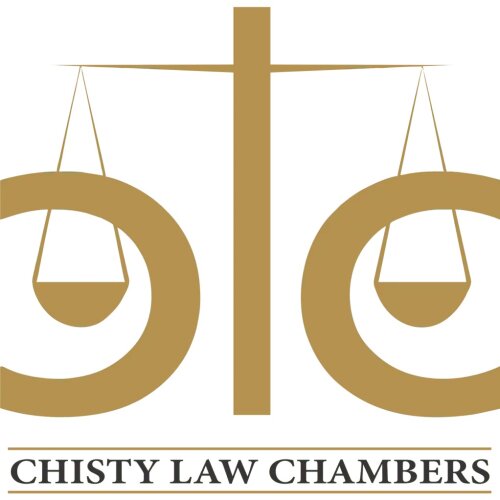Best Adoption Lawyers in Faisalabad
Share your needs with us, get contacted by law firms.
Free. Takes 2 min.
Free Guide to Hiring a Family Lawyer
List of the best lawyers in Faisalabad, Pakistan
Pakistan Adoption Legal Questions answered by Lawyers
Browse our 3 legal questions about Adoption in Pakistan and read the lawyer answers, or ask your own questions for free.
- Legally hw to adopt a child frm my sister cousin
- I'm living abroad, and I want to adopt a child from my sister's cousin. What will be the legal procedure? Would I be able to take a child with me legally? Will I get his or her visa by submitting what documents, and how much will it cost me? And... Read more →
-
Lawyer answer by Recososa Law Firm
Hello: We understand your concern about adopting your sister’s cousin’s child while you are living abroad. Allow me to provide you with a clear picture of the legal process presuming this is under Philippine jurisdiction. First, adoption in the Philippines...
Read full answer - Child adoptation
- I want to adopt a child from a poor family. But I am worried if they claim to get back their child in the future. What should I do?
-
Lawyer answer by Asma Lawyers In Pakistan
Please get statement of biological parents in court. We are also available to make arrangements. Best regards. Ms Asma Tanveer Randhawa Advocate
Read full answer - Child Adoption
- I was adopted Child from my sister on birthday now Mashallah adopted child's age is 14 years, now my sister wants to return his daughter, Child form in my name, and passport in my name she was travelling with me for umrah, what is the chance of custody if a... Read more →
-
Lawyer answer by Asma Lawyers In Pakistan
Dear Sir. Yes we are able to help by filing a suit against nadra. Please send us a direct messgae
Read full answer
About Adoption Law in Faisalabad, Pakistan
Adoption in Faisalabad, as in the rest of Pakistan, is a process that enables individuals or families to legally take on the parenting of a child from its biological or legal parent(s). In Islamic tradition, the concept is closer to guardianship and is called "Kafala". Islamic law does not allow the complete transfer of parental rights and responsibilities, and adopted children do not completely sever ties with their biological families. Instead, the adoptive family is expected to raise the child, provide for their needs, and give them a status within the family structure while maintaining the child’s lineage. Pakistani law reflects these principles and therefore does not traditionally allow for the same type of adoption processes seen in other countries.
Why You May Need a Lawyer
Legal advice is often sought in adoption cases for a variety of reasons. This includes navigating the intricacies of Pakistani family law, ensuring the legality of the adoption process, dealing with the rights of biological parent(s), handling the paperwork associated with the process, addressing any potential issues with the child’s status or inheritance rights, and international adoption procedures. Adopting a child can be a complex legal process, and a lawyer can provide significant guidance and assistance.
Local Laws Overview
In Faisalabad, as well as the rest of Pakistan, the primary law governing adoption is the Guardians and Wards Act of 1890. This law stresses the welfare of the child as the most important factor when awarding guardianship. The Family Courts Act of 1964 may also come into play as it includes provisions on the custody and guardianship of children. Furthermore, Pakistan’s constitution and various ratifications of international treaties on child welfare and rights influence adoption practices and child protection in the country. For Muslims, Islamic Sharia law will also provide guidelines on Kafala, maintaining the child's lineage (Nasab), and inheritance matters.
Frequently Asked Questions
1. What is the difference between adoption and Kafala in Faisalabad?
Kafala is the Islamic concept of child guardianship and is not the equivalent of western-style adoption. Under Kafala, the child maintains their biological family name and inheritance rights, and the kafil (guardian) does not have the same legal status as a biological parent.
2. Can adoptive parents give their name to an adopted child in Faisalabad?
Under Pakistani law, which is influenced by Islamic principles, an adopted child generally retains their biological family name, and the guardians do not replace the child’s family lineage with their own.
3. What legal processes must be followed for adopting a child in Faisalabad?
You need to apply for guardianship under the Guardians and Wards Act. The court will then make a decision based on the child's welfare. A lawyer can provide guidance through this process.
4. Is international adoption allowed in Faisalabad?
Yes, but it is a complex legal area that requires adherence to both Pakistani laws and the legal requirements of the adoptive parents’ home country.
5. How long does the adoption process take in Faisalabad?
The duration varies significantly based on individual circumstances, but it typically takes several months to a year or more to complete all legal procedures.
6. What are the costs associated with adopting a child?
Costs include legal fees, court costs, and any fees charged by orphanages or agencies. These will vary depending on the circumstances.
7. Can single individuals adopt children in Faisalabad?
Single individuals can become guardians, but priority is often given to married couples, particularly in the case of opposite-sex child adoption.
8. Can non-Muslims adopt a Muslim child?
Non-Muslims can apply for guardianship, but the court will consider the child’s religious upbringing as a factor in their decision.
9. Are there age requirements for the adoptive parents?
While specific age requirements aren’t clearly outlined in law, the potential adoptive parent(s) must be of legal adult age and usually at least 21 years old.
10. Can an adopted child inherit from their adoptive parents?
An adopted child cannot automatically inherit from their adoptive parents under Islamic law. However, the parents may will a portion (up to one-third) of their estate to the adopted child.
Additional Resources
Additional resources include the Child Protection and Welfare Bureau of Punjab, which provides support for orphaned and vulnerable children, and the Family Laws courts in Faisalabad. NGOs and private adoption agencies operating within the framework of Pakistani law can also assist in legal matters and offer support services during the adoption process.
Next Steps
If you are considering adopting a child in Faisalabad and require legal assistance, the next steps would be to consult with a family lawyer who is versed in local Pakistani law as well as Islamic family law, if applicable. They will guide you through the necessary procedures and help ensure that all legal requirements for adopting a child are met. It's also advisable to reach out to the Child Protection and Welfare Bureau or an approved adoption agency for further information and support.
Lawzana helps you find the best lawyers and law firms in Faisalabad through a curated and pre-screened list of qualified legal professionals. Our platform offers rankings and detailed profiles of attorneys and law firms, allowing you to compare based on practice areas, including Adoption, experience, and client feedback.
Each profile includes a description of the firm's areas of practice, client reviews, team members and partners, year of establishment, spoken languages, office locations, contact information, social media presence, and any published articles or resources. Most firms on our platform speak English and are experienced in both local and international legal matters.
Get a quote from top-rated law firms in Faisalabad, Pakistan — quickly, securely, and without unnecessary hassle.
Disclaimer:
The information provided on this page is for general informational purposes only and does not constitute legal advice. While we strive to ensure the accuracy and relevance of the content, legal information may change over time, and interpretations of the law can vary. You should always consult with a qualified legal professional for advice specific to your situation.
We disclaim all liability for actions taken or not taken based on the content of this page. If you believe any information is incorrect or outdated, please contact us, and we will review and update it where appropriate.













